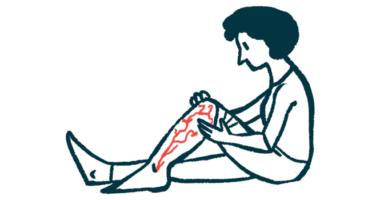As a Caregiver, I Want to Be Mindful When Misunderstandings Happen

A few days before the new year, I cleaned my backyard deck and accidentally toppled a cactus plant onto my foot. While I walked away relatively unscathed, a week later, I noticed that tiny bumps had appeared where the cactus had hit my skin. I’d been carrying around thorns embedded in my skin for almost a week.
Not one to miss out on a good analogy, it occurred to me as I was removing scores of tiny cactus needles from my foot how we can unknowingly carry around emotional baggage throughout our lives — experiences and occurrences we might not be aware of, but which can be scarring.
As a caregiver to my husband, who was diagnosed with hereditary ATTR amyloidosis in 2013, on many occasions I’ve had to face disappointing and hurtful moments. hATTR amyloidosis upends worlds and robs people of the ability to thrive. With no known cure, the disease deposits malformed fibrils onto patients’ organs, which gradually destroys their bodies’ functioning.
The transformation that occurs affects them physically, mentally, and emotionally. As a caregiver, understanding the significance and impact of this disease is essential. This knowledge helps me to prepare and adapt to the dynamics of the condition.
Plans and hopes for a future together with my husband now hang in the balance. Disagreements and words spoken in the heat of an argument can become embedded deep in the psyche. Unless that emotional wound is treated, it can surface at unexpected times and cause unpleasant consequences, like a sea monster.
After nine years on this journey, I have learned that conflicts and strife are unavoidable. Disappointments in each other and the heartbreak that often follows are inevitable. The only way to make each other right so that we can carry on is to take some time away to reflect and scrutinize the problem.
I often find that an issue is never personal. The biggest obstacle and culprit is always the disease. It’s the cactus that has toppled over into our lives and planted splinters into our relationship. The best way to withstand that irritation is to keep a conscious and vigilant eye on the situation.
These days, I am quicker to forgive and forget when misunderstandings happen. I don’t want the hurt to fester and snowball into something unfixable. At the end of the day, it is the condition talking, not the person I care for.
If you find yourself in a similar situation, find that splinter and get rid of it.
***
Note: FAP News Today is strictly a news and information website about the disease. It does not provide medical advice, diagnosis, or treatment. This content is not intended to be a substitute for professional medical advice, diagnosis, or treatment. Always seek the advice of your physician or other qualified health provider with any questions you may have regarding a medical condition. Never disregard professional medical advice or delay in seeking it because of something you have read on this website. The opinions expressed in this column are not those of FAP News Today or its parent company, BioNews, and are intended to spark discussion about issues pertaining to familial amyloid polyneuropathy.







Comments
Harry van Kleef
Hi Jamie
I could't agree more. It has been a steep learning curve for me. There is no point arguing with the desease.
Jaime Christmas
Love it! Took me a while to come to this point though. We live and we learn :)